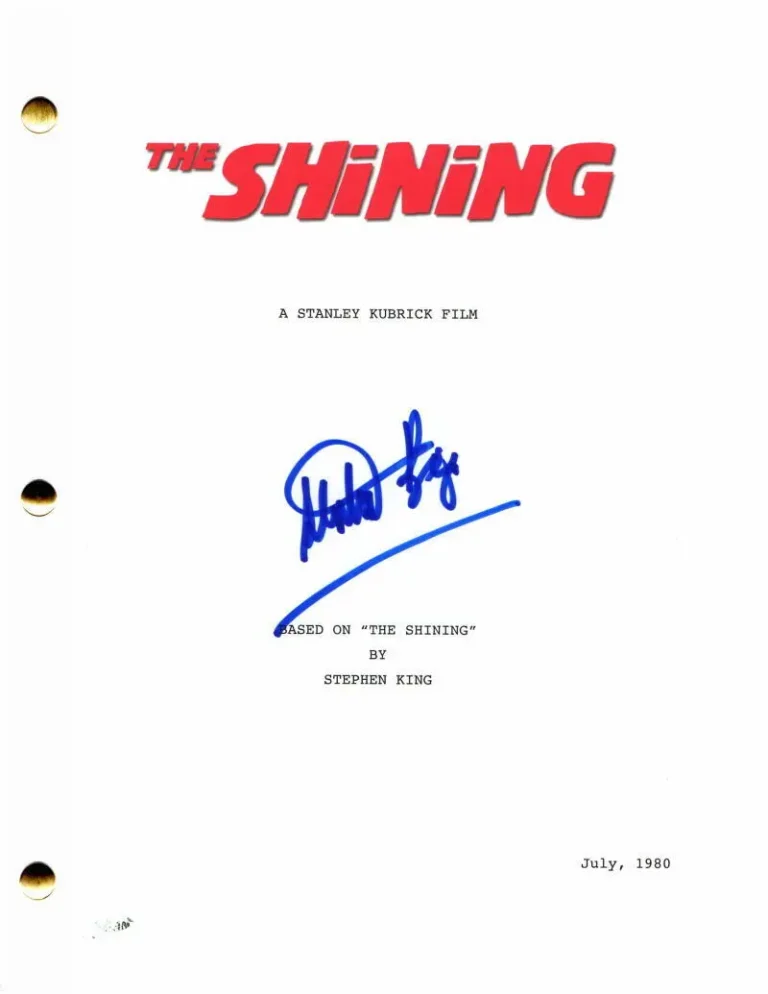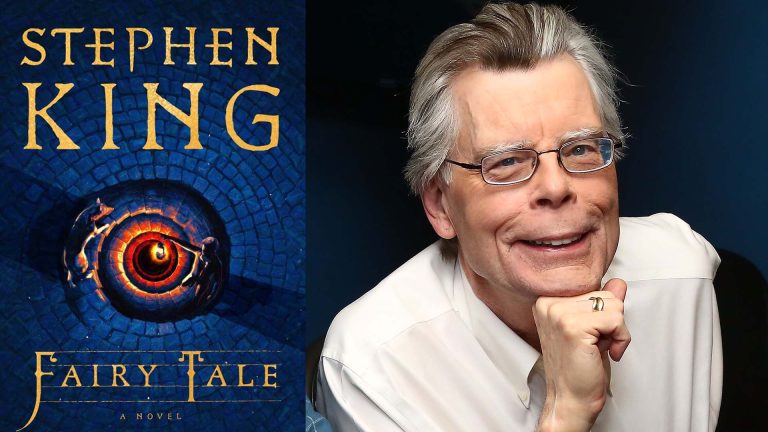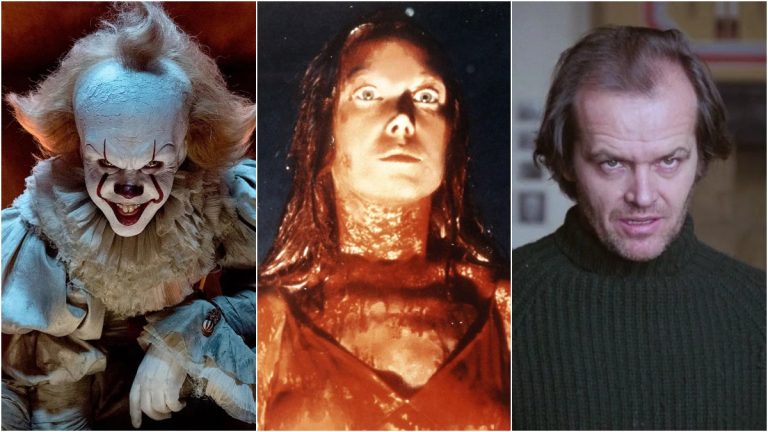Are There Any Stephen King Movies With Alternative Storylines?
If you’re a fan of Stephen King and his thrilling stories, you might be wondering if there are any movies based on his works that feature alternative storylines. Well, you’re in luck! In this article, we’ll dive into the world of Stephen King adaptations and explore whether any of his movies have taken creative liberties with the original narratives. So sit back, relax, and get ready to unravel the intriguing possibilities that Stephen King’s movies have to offer.
Stephen King’s novels and short stories have captivated readers for decades, and many of them have been adapted into movies that bring his twisted tales to life on the big screen. While most adaptations stay true to the source material, some filmmakers have dared to take a different approach, presenting alternative storylines that deviate from the original narratives. In this article, we’ll explore these unique adaptations and discuss the creative choices that were made to give fans a fresh and unexpected experience. So, whether you’re a die-hard Stephen King fan or simply curious about the world of alternative storylines in movies, keep reading to discover the hidden gems that await you.

Are there any Stephen King movies with alternative storylines?
Stephen King is known for his captivating and chilling novels, many of which have been adapted into successful movies. Fans of his work often wonder if any of these movies have alternative storylines, offering a fresh perspective on the beloved stories. In this article, we will explore whether there are any Stephen King movies with alternative storylines and delve into the details of these adaptations.
The Shining: The Kubrick Version vs. The TV Miniseries
Stephen King’s novel “The Shining” was first brought to the big screen by acclaimed director Stanley Kubrick in 1980. The film, starring Jack Nicholson, is widely regarded as a horror masterpiece. However, King himself was not entirely satisfied with Kubrick’s interpretation, leading him to create a TV miniseries adaptation in 1997.
In Kubrick’s version, the focus is on the psychological descent of Jack Torrance, played brilliantly by Nicholson. The film deviates from the novel in several key aspects, including the portrayal of the Overlook Hotel and the ultimate fate of certain characters. King’s TV miniseries, on the other hand, stays closer to the source material, providing a more faithful adaptation of his original story. Both versions have their merits and offer viewers different perspectives on the haunting tale of the Torrance family.
Kubrick’s Vision: A Cinematic Masterpiece
Stanley Kubrick’s film adaptation of “The Shining” is widely regarded as a cinematic masterpiece. The director’s unique vision and attention to detail created a visually stunning and psychologically disturbing experience for audiences. Jack Nicholson’s performance as the increasingly unhinged Jack Torrance is legendary, and the film’s iconic scenes, such as the elevator of blood and “Here’s Johnny!”, have become ingrained in popular culture.
While Kubrick’s version may have deviated from the novel in certain aspects, it is important to appreciate the film as a separate entity and a work of art in its own right. Kubrick’s interpretation brought a distinct and chilling atmosphere to the story, showcasing his talent as a filmmaker and leaving a lasting impact on viewers.
King’s Miniseries: A Faithful Adaptation
Stephen King’s TV miniseries adaptation of “The Shining” aimed to provide a more faithful representation of his original novel. Starring Steven Weber as Jack Torrance, the miniseries delves deeper into the psychological aspects of the story, exploring the characters’ motivations and struggles in greater detail. Additionally, King’s involvement in the miniseries ensured that his vision was accurately portrayed on screen.
While the miniseries may not have garnered the same level of critical acclaim as Kubrick’s film, it offers fans of the novel a chance to see King’s story unfold with more fidelity. It provides a different perspective on the characters and events, allowing viewers to appreciate the nuances of the original narrative.
In conclusion, “The Shining” serves as an example of a Stephen King adaptation with alternative storylines. Stanley Kubrick’s film and Stephen King’s TV miniseries offer viewers contrasting interpretations of the same source material. Both versions have their merits, and fans of King’s work can enjoy experiencing the story from different angles. Whether you prefer Kubrick’s cinematic masterpiece or King’s faithful adaptation, there is something captivating about exploring alternative storylines within the Stephen King universe.
Key Takeaways: Are there any Stephen King movies with alternative storylines?
- Some Stephen King movies have alternative storylines that differ from the original source material.
- One example is the movie “The Shining,” directed by Stanley Kubrick, which deviates from the book’s plot in certain aspects.
- Another film with an alternative storyline is “The Mist,” where the ending differs from the original novella.
- “Pet Sematary” is another Stephen King adaptation that features changes to the story, particularly in the portrayal of certain characters.
- It’s important for fans of Stephen King’s work to understand that movies often take creative liberties with the source material, resulting in alternative storylines.
Frequently Asked Questions
Are there any Stephen King movies with alternative storylines?
Stephen King is known for his captivating and often chilling stories, many of which have been adapted into movies. While most of these movies stay true to the original storyline, there are a few that have taken creative liberties and presented alternative narratives. Here are five Stephen King movies that feature alternative storylines:
1. The Shining (1980): Directed by Stanley Kubrick, this iconic horror film deviates from the novel in several ways. While King’s book focuses more on the supernatural elements and the descent into madness of the main character, the movie emphasizes the psychological aspects and explores themes of isolation and family dynamics.
2. Carrie (1976): Brian De Palma’s adaptation of King’s debut novel adds a dramatic twist to the ending. In the book, Carrie destroys the town with her telekinetic powers, but in the movie, she survives and is seen visiting her mother’s grave. This alternative ending offers a glimmer of hope amidst the devastation.
Do Stephen King movies with alternative storylines receive positive reception?
Alternative storylines in Stephen King movies often spark debates among fans and critics. While some appreciate the fresh interpretations and the opportunity to experience the story in a new way, others prefer a faithful adaptation that stays true to the source material. The reception ultimately depends on personal preferences and the execution of the alternative storyline.
For example, Stanley Kubrick’s alternative take on The Shining garnered mixed reactions upon its release. Some praised its atmospheric tension and iconic scenes, while others criticized it for straying too far from the original novel. However, over time, the movie has gained a cult following and is now considered a classic in its own right.
Which other Stephen King movies have alternative storylines?
In addition to The Shining and Carrie, there are a few other Stephen King movies with alternative storylines:
3. 1408 (2007): This supernatural horror film, based on a Stephen King short story, diverges from the original ending. While the story concludes with the protagonist’s death, the movie offers a glimmer of hope by suggesting the possibility of his survival.
4. Doctor Sleep (2019): The sequel to The Shining novel takes a different path in its film adaptation. While the book explores the aftermath of the events at the Overlook Hotel, the movie incorporates elements from the original film, providing a unique blend of both the novel and the Kubrick adaptation.
5. The Mist (2007): Directed by Frank Darabont, this film adaptation of King’s novella features an ending that diverges significantly from the original story. The movie’s conclusion offers a shocking twist that was not present in the source material.
Why do filmmakers choose to create alternative storylines in Stephen King movies?
Filmmakers often choose to create alternative storylines in Stephen King movies to bring a fresh perspective to familiar stories and surprise audiences who may already be familiar with the source material. It allows them to reinterpret the narrative and add their own creative flair, making the movie experience unique and unpredictable.
Additionally, filmmakers may make changes to accommodate the constraints of the medium or to better suit the tone and style they wish to achieve. Adapting a novel into a movie requires condensing and simplifying the plot, which can sometimes result in alternative storylines or modified endings.
Are alternative storylines in Stephen King movies well-received by fans?
The reception of alternative storylines in Stephen King movies varies among fans. Some appreciate the fresh take and enjoy the element of surprise, while others prefer a faithful adaptation that stays true to the original material. It often sparks lively discussions and debates among fans, highlighting the diverse opinions and preferences within the Stephen King fandom.
Ultimately, the success of an alternative storyline depends on its execution and how well it resonates with the audience. If the changes enhance the overall viewing experience and maintain the essence of Stephen King’s storytelling, they can be well-received by fans.
8 Alternative Endings To Stephen King Novels That Were Originally Planned
Final Summary: The Thrilling World of Stephen King Movies with Alternative Storylines
As we wrap up our exploration of the fascinating realm of Stephen King movies with alternative storylines, it’s clear that this renowned author’s works continue to captivate audiences in new and unexpected ways. From the chilling horror of “The Shining” to the mind-bending twists of “The Dark Tower,” King’s storytelling prowess shines through in every adaptation.
With alternative storylines, filmmakers have the opportunity to offer fresh perspectives and imaginative takes on King’s beloved tales. Whether it’s a divergent path in the narrative or a complete reimagining of the source material, these movies provide a thrilling and unique viewing experience for fans and newcomers alike. So, for those seeking an extra dose of suspense and surprise, delving into the world of Stephen King movies with alternative storylines is an absolute must.






